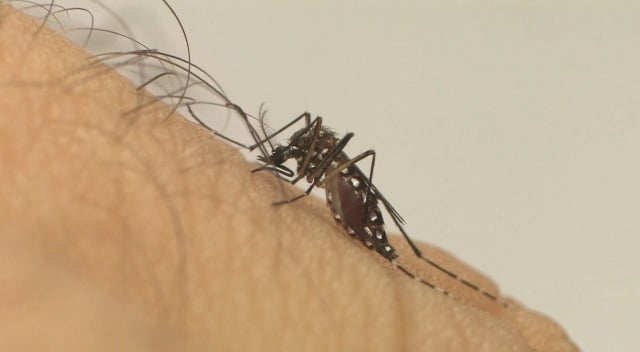
[ad_1]

The mosquito Aedes aegypti is the real villain of history: it transmits dengue, zika, chikungunya and Nile fever
Minors who plan to enjoy the summer on the beaches of Rio de Janeiro , to the attention. The Oswaldo Cruz Foundation (Fiocruz) and state health agencies in Rio de Janeiro warned Wednesday that Rio could face an epidemic of chikungunya this summer. From January to October this year, about 37,000 cases of the disease were recorded in the state and only 4,425 cases were reported during the same period in 2017.
The transmitter of the disease is the fateful Aedes aegytpi dengue fever, Zika virus, Nile fever and even yellow fever.
According to the coordinator of Vigilance and Health of the reference laboratory of Fiocruz, Rivaldo Venâncio, the mosquito does not measure a centimeter, lives only 30 days and causes many damages, in addition to a legion of deaths in all over Brazil, the increase in the number of cases of chikungunya represents a challenge for the state of Rio de Janeiro, which faces political and economic difficulties.
"We are talking about a relatively new disease in Brazil and Rio de Janeiro Most health professionals trained more than five years ago certainly have no contact with information about the disease. Therefore, we have an additional challenge: to allow these health professionals from different categories to take care of it, "said the coordinator.
Disease
Chikungunya is a viral disease that begins with fever. headache, discomfort, aches and pains in the joints (knees, elbows, ankles, etc.), usually on both sides, and may also have, in some cases, red patches or blisters on the body
Acute treatment lasts up to 15 days and heals spontaneously. Some people may develop post-acute and chronic pain with joint pain that can last for months or years. The information comes from the Ministry of Health.
How to avoid?
To avoid chikungunya, dengue, zika virus and fevers, the only solution is to eliminate the mosquito Aedes . People need to be aware of the importance of doing simple things at home, such as removing stagnant water from ships, tires and other containers; clean dishes (where the larvae can keep the virus incubating for one year without hatching); and to remove from circulation any object that can retain rainwater and serve as a reservoir for mosquitoes
It is also indicated to use repellents
Yellow fever is also a threat
In Rio de Janeiro, the riskiest period is the transmission between January and May. "It is recommended that the person suffering from sudden high fever seek a health post for evaluation.The groups at risk of chikungunya are: children and the elderly, especially those with badociated chronic diseases", a said Alexandre Chieppe, undersecretary for health surveillance, Rio de Janeiro. He also explains that the increase in the number of cases is worrisome. of yellow fever during the summer, the population of the state of Rio not having been properly vaccinated. 268 cases have already been recorded this year.
"We are very worried about having to deal with the same events that occurred with yellow fever this summer in the same period from 2017 to 2018. That is why Fiocruz, which is the manufacturer of the vaccine against yellow fever, calls the unvaccinated population to seek health facilities to be vaccinated, which is the safest way to avoid the disease, "he explained.
[ad_2]
Source link